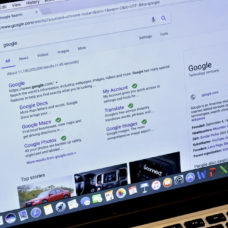Think of Google penalties as the boogeyman of digital marketing. It’s ever-lurking, relentless, unforgiving, and always waiting to sink your online business for the slightest transgression.
It all dates back to 1998. Google was starting up with a core mission to deliver the most relevant search result to users.
For the most part, it did. Then a big problem became apparent.
Businesses soon started realizing the importance of ranking high on the search engine results page, leading to the struggle for the first page of the SERP.
The war to dominate the search engine had begun.
From keyword stuffing to invisible text, websites soon started employing techniques to trick the Google algorithm. Since it was at the detriment of the user’s experience, the tricks went against the search engine’s core mission.
Needless to say, Google was not happy.
The tech company soon devised a solution to this fundamental problem: frequent algorithm updates which look for signs of SEO tricks, unnatural use of language, and spammy links, among others.
It was a win-win for all the parties involved. Website architectures became better, and the audience no longer had to click on tons of links to find their result.
The quality of experience improved too. Along with it, businesses that followed the rules started ranking higher.
There was just one problem. Regardless of what marketers, web developers, and online developers may have done right, they could still always get penalized.
When this happens, the sites plummet on the search engine results rankings and lose their ability to generate business.
This raises an essential question: how can websites avoid Google penalties?
5 Tips On How to Avoid Google Penalties
1. Know the Rules
Google makes the rules. That means you must follow it to have a shot at the top spot on the search engine results page.
It’s not difficult to follow the rules. You just have to create good content for your audience and avoid no gimmicks to trick the algorithm. Stick to things that provide value.
2. Consider a Content Audit
Before you get confused, this is just fancy talk for “check that your content is not violating any rule.” Let’s break down the idea, shall we?
At this point, you already know the Google guidelines. With this knowledge, you can check the pages on your site to ensure you’re abiding by the rules.
Check for spammy content and keyword stuffing. Also, make sure that your images are alt-tagged and improve your content if necessary.
Since spammy content is one of the major causes of algorithm penalties, a content audit could help you win half of the battle.
3. Disavow Spammy Links
Now that you’re done with the content audit, the next step is simple. Do a link profile audit and get rid of the bad links.
The first thing that you must consider when performing a link audit is the quality of the link.
Since it could also incur Google’s wrath, you want to know whether your links come from spammy websites or good ones. So, get a list of all your links from Google Webmaster Tools, and do some digging.
Now, what should you do when you find spammy links?
First, send an email to the webmaster and ask that they remove the link. But, if the webmaster does not respond, use a disavow tool instead.
While you’re cleaning up your spammy backlinks, consider optimizing your anchor text too.
4. Stay Up-to-Date On Google’s Algorithm
The easiest way to avoid Google penalties is to know the rules. But knowing the rules is a bit tricky since the search engine giant is always changing it.
As such, it becomes essential to stay on top of Googe algorithm updates.
Luckily for you, several online platforms and communities can help in this quest. For example, Moz’s algorithm change log provides an up-to-the-minute reporting on every algorithm change.
Also, search communities often discuss the major changes that could affect websites.
5. Focus on Creating Great Content
You’ve learned the rules, followed it, and cleaned up your link profile. Now, it’s time to create great content.
So, provide the best write-ups that you are capable of producing. Throw in engaging videos, infographics, and pictures too.
Not only would it increase traffic, but when people love what they’ve read, they’ll share. Then, the links would come, and your ranking on the SERP will rise.
Most importantly, it’ll keep the boogeyman of internet marketing away from your site.



















Comments (0)
Most Recent